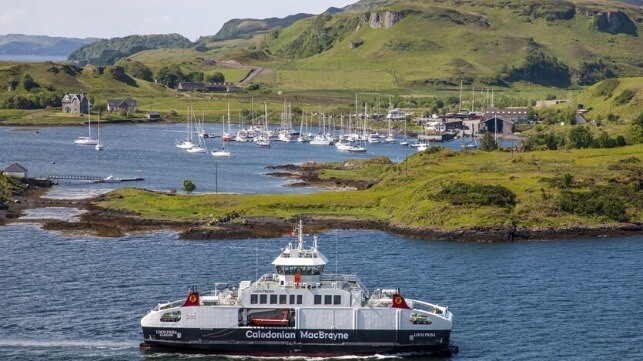Study: Majority of Scotland’s Coastal Vessels Untracked Operate Without AIS

Scotland is largely operating blind in the management of its marine resources according to new research published this week as part of a project designed to create a better understanding of the exposure of whales, dolphins, and seals to coastal shipping. It emerged the researchers report that over half of vessels operating in the country’s coastal waters are “invisible” to standard maritime tracking systems.
A team of researchers at Scottish Heriot-Watt University carried out a study that was published this week which is sounding the alarm that the country is navigating blind in as far as understanding the potential adverse impacts of vessels crisscrossing its coastal waters is concerned. The study asserts that only 43 percent of vessels within a 10-kilometer radius of the Scottish coast broadcast an Automatic Identification System (AIS) signal, the standard global tool to monitor ship movements.
Smaller vessels, such as fishing boats under 15 meters, recreational craft, and jet skis, accounted for much of the missing data. Though they are not legally required to carry AIS, the vessels have the option of voluntarily installing and broadcasting data.
Considering that Scottish coast waters are getting busier, the study published in the academic journal Marine Policy contends that lack of visibility poses significant risks to marine life, safety, and sustainable ocean management. This is because governments, conservation bodies, and researchers mainly depend on AIS data to model vessel-related impacts such as underwater noise pollution, whale and dolphin collision risk, anchor damage to the seabed, greenhouse gas emissions, and climate impact. Scotland’s coasts are a vital habitat for species like bottlenose dolphins, minke whales, and orcas.
“With an improved understanding of the activities and movement of different types of vessels, marine planners and policymakers could tailor regulations to maximize their potential effectiveness,” said Lauren McWhinnie, one of the study’s authors. She adds that the wider maritime sector could further benefit through improved safety and awareness.
The study seeks to hold Scottish authorities accountable for assuming that they can rely on AIS to know what is happening in coastal seas. After analyzing over 1,800 hours of land and sea surveys conducted between 2019 and 2024 covering nine of Scotland’s 11 marine regions, the glaring fact is that a majority of vessels operate untracked with over 75 percent of vessel activity going unrecorded in some areas.
In the Outer Hebrides region, for instance, only 20 percent of vessels were transmitting AIS data despite the area being a hotspot for ecotourism, fishing, and aquaculture. The Orkney Islands region showed a higher rate, with 58 percent of vessels broadcasting.
The researchers are pushing authorities to take proactive actions in ensuring all types of vessels operating in the country’s waters, including smaller vessels, broadcast their position using AIS to effectively balance tourism and other vessel-based activities with local sustainability and environmental objectives.
